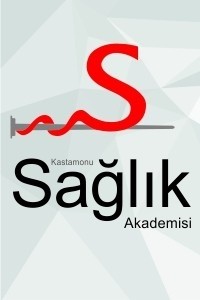TERAPIAS COMPLEMENTARES EM PORTUGAL: CONHECIMENTOS E PERCEPÇÕES DE ADULTOS EM TEMPOS DE COVID-19
Introduction: The attention and interest from social media, health professionals, government agencies and the general public, and the use of services in the context of Complementary and/or Alternative Medicine (CAM) has been growing, with more hospitals, health systems and insurance companies providing this kind of services, and more scientific publications and training on the subject. Objective: To identify adults’ knowledge and perceptions on CAM. Method: After obtaining the necessary authorizations, between 1/10-27/11/2021, a total of 104 adults living in Portugal answered to a Google Forms questionnaire on health (self-)care practices. Results: Regarding the extent to which the participants had knowledge of non-conventional health (self-)care practices (NCHsCP), most (41.7%) knew little about it and 10.7% had no knowledge. The majority (54.9%): had already looked for information about NCHsCP, was interested in having (more) knowledge about it (75.7%), and had someone close to them who had already used and/or was using some non-conventional practice (56.3%). Only 13.7% had done training in some non-conventional practice and 4.9% considered it impossible to reconcile conventional and non-conventional health (self-)care practices. The majority (63.1%) stated that knowledge about non-conventional practices is important to them as a (future) health professional (it did not apply to 29.1%). Conclusions: These preliminary results suggest that, specially in times of COVID-19, it is crucial to develop interventions to raise awareness of health care professionals and the general public regarding the specificities, potentialities and dangers of NCHsCP.
CAM IN PORTUGAL: ADULTS KNOWLEDGE AND PERCEPTIONS IN TIMES OF COVID-19
Introduction: The attention and interest from social media, health professionals, government agencies and the general public, and the use of services in the context of Complementary and/or Alternative Medicine (CAM) has been growing, with more hospitals, health systems and insurance companies providing this kind of services, and more scientific publications and training on the subject. Objective: To identify adults’ knowledge and perceptions on CAM. Method: After obtaining the necessary authorizations, between 1/10-27/11/2021, a total of 104 adults living in Portugal answered to a Google Forms questionnaire on health (self-)care practices. Results: Regarding the extent to which the participants had knowledge of non-conventional health (self-)care practices (NCHsCP), most (41.7%) knew little about it and 10.7% had no knowledge. The majority (54.9%): had already looked for information about NCHsCP, was interested in having (more) knowledge about it (75.7%), and had someone close to them who had already used and/or was using some non-conventional practice (56.3%). Only 13.7% had done training in some non-conventional practice and 4.9% considered it impossible to reconcile conventional and non-conventional health (self-)care practices. The majority (63.1%) stated that knowledge about non-conventional practices is important to them as a (future) health professional (it did not apply to 29.1%). Conclusions: These preliminary results suggest that, specially in times of COVID-19, it is crucial to develop interventions to raise awareness of health care professionals and the general public regarding the specificities, potentialities and dangers of NCHsCP.
___
- Reference 1 ..............................
